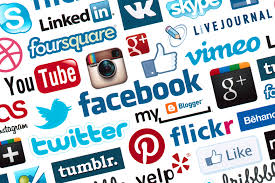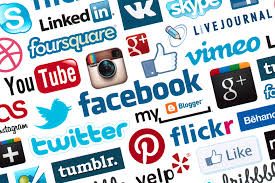 We need to get rid of social media. It was a good idea but it’s ruining our brains, our behavior, and our society. This…from an addict who’s online ALL day.
We need to get rid of social media. It was a good idea but it’s ruining our brains, our behavior, and our society. This…from an addict who’s online ALL day.
I didn’t always feel this way. In the beginning social media had so much promise: an instant way to communicate fluidly and fast with the people you love, people you’ve lost touch with, friends and family. It was also a way to educate ourselves by reading articles on every subject you could imagine. I especially loved Twitter in the beginning. Every tweet had a link to an interesting article. I remember telling people I’d never felt so well-informed.
But then the rot set in.
Social media drives fake news
These days Social Media sits at the apex of an ongoing “fake news” battle, perpetrated by you-know-who. Unfortunately, it has completely changed the way the world’s news is or isn’t reported. It’s hard to know who’s telling the truth, and trusted media giants like the New York Times is coming under public scrutiny. At the same time Fox News has plumbed new depths of untruth, so deep, in fact, that Shep Smith, who had been with Fox since its inception 23 years ago, just resigned.
52% of US adults consume the news via Facebook
Just a few days ago Tech Crunch reported on a survey from the Pew Research Center. It looks like 52% of American adults surveyed this summer get their news solely from Facebook, the most popular social platform. YouTube was second and Twitter third, at 28% and 17%. In fact, 88% of all responders say social media such as Facebook has ‘at least some control’ over the news we see.
That should worry everybody. If 88% of users think Facebook controls the news in some way, more than half use it as their personal news channel. Come on. That’s nuts. By its own admission, Facebook is not a newspaper, magazine, or news channel. Where on earth are our heads at?
Social media ads manipulate what we see
But content is only one of the culprits in manipulating public opinion. In September 2019 social media advertising came under the spotlight. It turns out that since 2016, and likely before, interested parties can rewrite news headlines to suit their own political agendas and upload them as ads on social media. They look like news, they read like news, but they’re ads. NOT NEWS. In fact, chances are If you only read news headlines, not the actual stories that follow, you will have been influenced without realizing it.
Lonely and Depressed Kids
 There’s more. We’re now starting to assess the impact of social media on teens and kids. The New York-based Childmind website contains some disturbing insights about kids and social media. It looks like there may be a link between social media and depression. A number of studies show that teens and young adults who spend the most time on social media report a 13-66% higher rate of depression than those who spent the least time on networks. Bear in mind this is a correlation, not causation, but there are clear warning signs emerging.
There’s more. We’re now starting to assess the impact of social media on teens and kids. The New York-based Childmind website contains some disturbing insights about kids and social media. It looks like there may be a link between social media and depression. A number of studies show that teens and young adults who spend the most time on social media report a 13-66% higher rate of depression than those who spent the least time on networks. Bear in mind this is a correlation, not causation, but there are clear warning signs emerging.
It could be the result of smartphones. Smartphones arrived in 2007 and by 2015 more than 90% of teens and young adults owned one. The rise in depression we’re seeing correlates neatly with the rise in smartphone use, when matched year by year. Are the machines making us unhappy? Or the content on them? Like bullying, insults, and messages designed to hurt.
Over the past twelve years, young people spend less time connecting with peers face-to-face, more time connecting electronically, and they do it mostly via social media. Experts say electronic interactions are less emotionally satisfying than the real thing, ironically leaving our young people socially isolated, missing the deep, empathic communications that make humanity what it is. In the words of Alexandra Hamlet, PsyD, a clinical psychologist at the Child Mind Institute, “The more superficial it is, the less likely it’s going to cause you to feel connected, which is something we all need.”
More coming in a few days… for now, though, let the comments fly. I’ll respond. Thanks.
